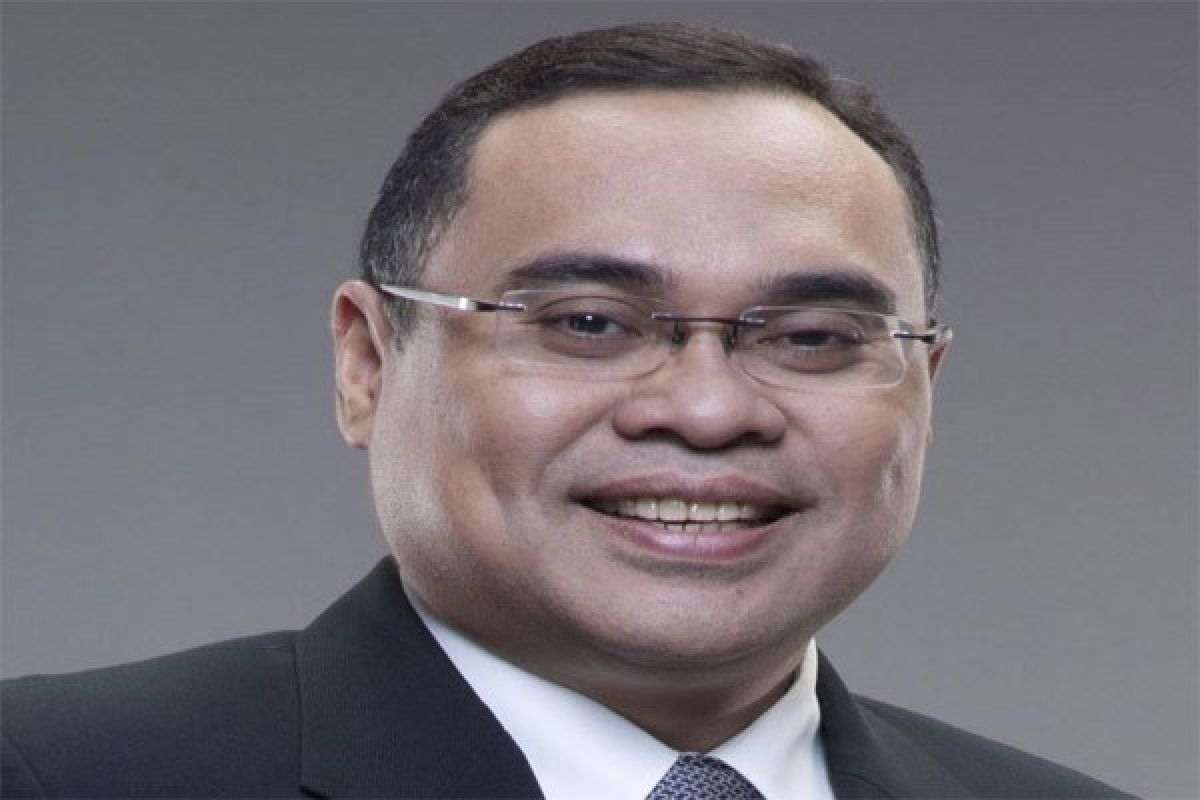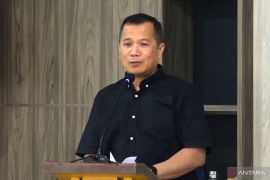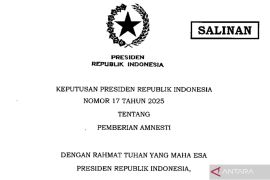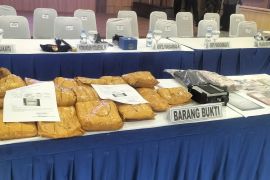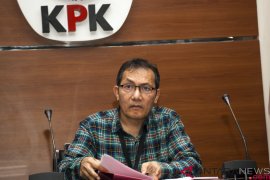Do not let Ban Ki-moon equalize the UN to Amnesty International, which is an international non-governmental organization."Jakarta (ANTARA News) - Indonesia needs to immediately lodge a protest against UN Secretary-General Ban Ki-moon regarding the statement issued through his spokesman over the recent execution of death row drug convicts in the country, an observer stated.
"Statement after statement has been made before and after the implementation of execution in Indonesia. In the last statement, the secretary general said he deplored the execution while stating that death penalty no longer has a place in the 21st century," the observer Hikmahanto Juwana, an international law professor at the state University of Indonesia, stated here on Thursday.
He noted that the UN secretarys statement about the death penalty made close to the day of execution of the drug convicts in Indonesia indicated that it was deliberately addressed to the country "while a UN secretary general is not allowed to make a statement, which is exclusively addressed to a particular country in line with Article 2, Paragraph (7) of the UN Charter."
The Article states "no provision in the Charter gives authority to the UN to intervene in matters, which essentially come under the jurisdiction of each country," the professor pointed out.
He said the UN secretary general, as one of the UNs main organs, is included as an organ bound by Article 2, Paragraph (7) of the UN Charter.
He remarked that the UN secretary generals statement gives the impression that the UN is above Indonesia, which is a country, whose sovereignty must be respected.
"Ban Ki-moon, as the highest official at the UN Secretariat General, must have exercised restraint by not making a statement over the death penalty as the penalty is also still effective in a number of countries, including the United States," he affirmed.
He pointed out that even when China and Saudi Arabia implemented a death penalty recently, no statement was issued by the UN secretary general.
Moreover, Ban Ki-moon, as a South Korean citizen, has no moral legitimacy to make such a statement as South Korea still recognizes death penalty.
"Do not let Ban Ki-moon equalize the UN to Amnesty International, which is an international non-governmental organization," he emphasized.
Professor Hikmahanto noted that the Indonesian foreign minister and ambassador to the UN must lodge a strong protest soon in line with the Bandung spirit.
He said the Bandung Principles must be kept alive in the current age as declared during the recent Asia-Africa Conference.
He stated that for Indonesia, the issue of death penalty is not about the pros and cons, but whether foreign countries will respect the countrys sovereignty or not and prevent themselves from intervening in the matter.
"State officials must defend Indonesia as a sovereign country that is not willing to be bullied by the UN secretary general," he affirmed.
Professor Hikmahanto feared that if the foreign minister and ambassador do not stop the UN secretary general from making such a statement, it can incite public ire.
Indonesia has so far carried out two operations to execute drug convicts who were handed down final and binding death sentences by a court.
Five foreigners from Malawi, Nigeria, Vietnam, Brazil, and the Netherlands were executed in January 2015, while on Wednesday morning (April 28, 2015), eight death row drug convicts were executed, and one convict was spared.
The eight individuals executed on Wednesday morning were Andrew Chan and Myuran Sukumaran from Australia; Zainal Abidin from Indonesia; Martin Anderson alias Belo from Ghana; Rodrigo Gularte from Brazil; Sylvester Obiekwe Nwolise, Okwudili Oyatanze, and Raheem Agbaje Salami from Nigeria.
Indonesian President Joko Widodo has declared strict law enforcement to combat the drug menace. Widodos predecessor had also expressed major concern over the widespread distribution of drugs that had been destroying the nations youth.
Indonesia is in a state of drug emergency as approximately 4.2 million people are estimated to be drug users.
"Some 50 people die every day of drug use, while the drug menace costs the nation Rp63 trillion worth of losses per year," Anang Iskandar, the chief of the National Anti-Narcotic Agency, stated.
(Uu.A063/H-YH/INE/KR-BSR/F001)
Editor: Priyambodo RH
Copyright © ANTARA 2015
